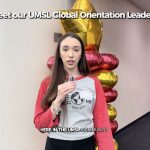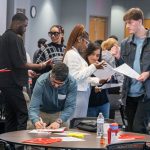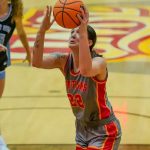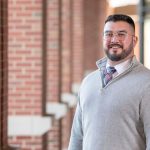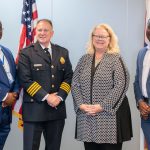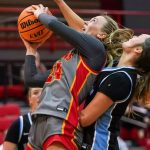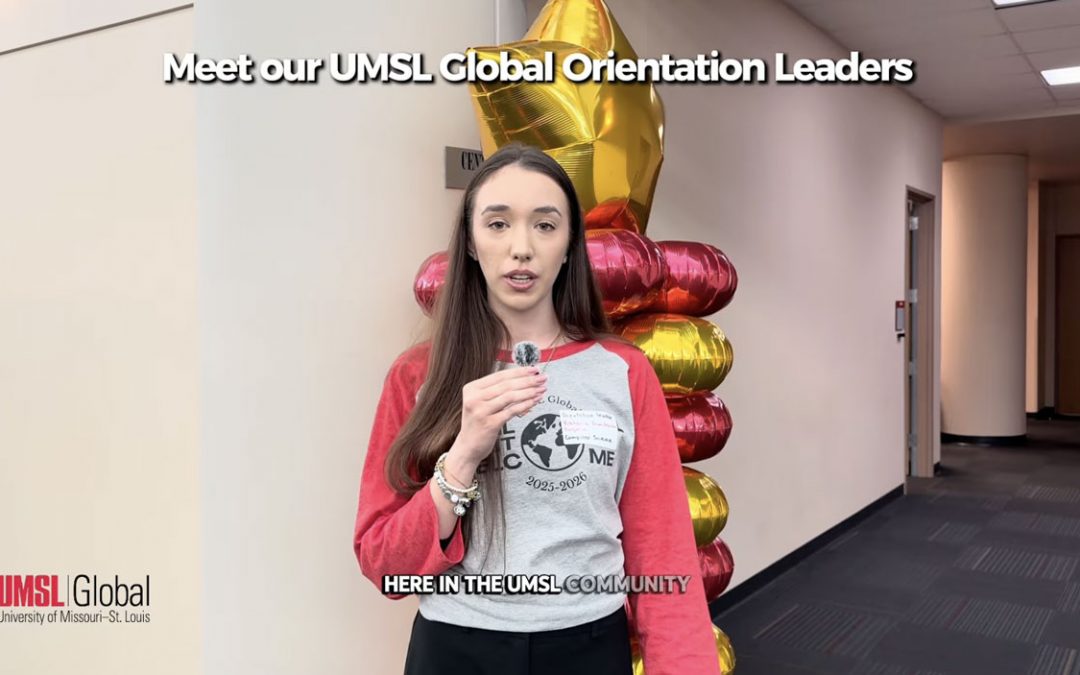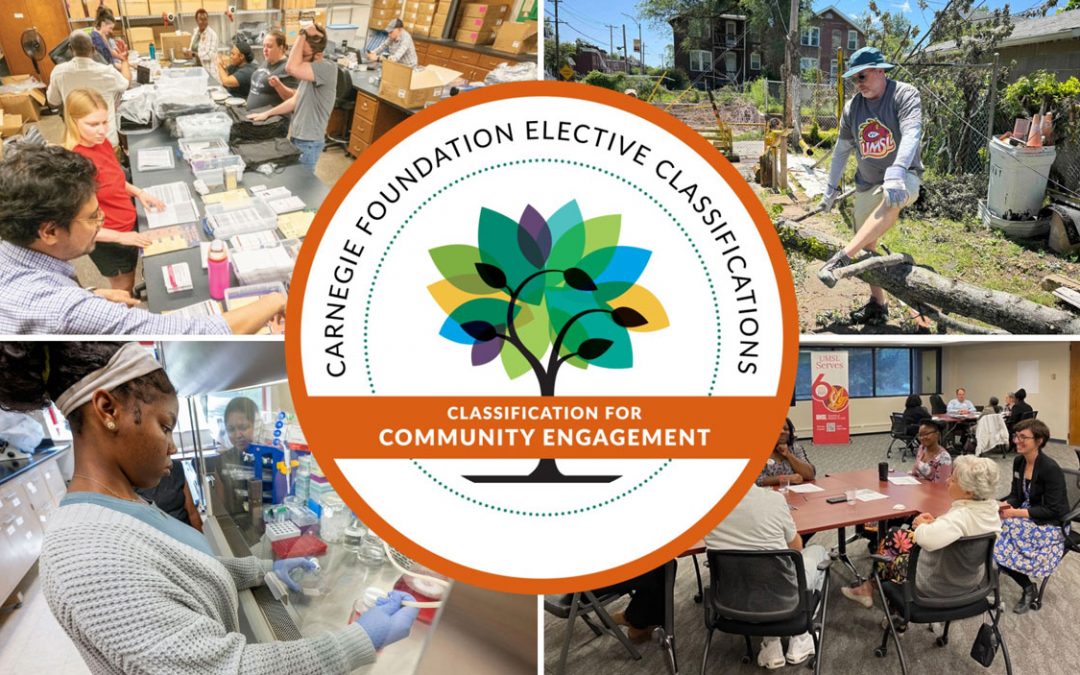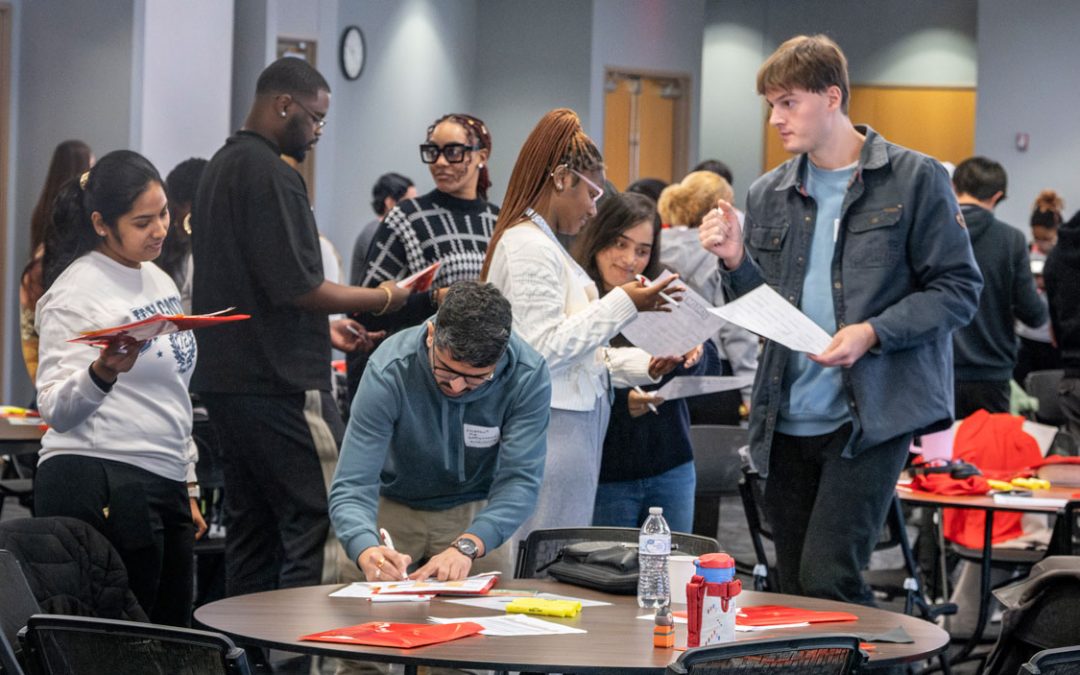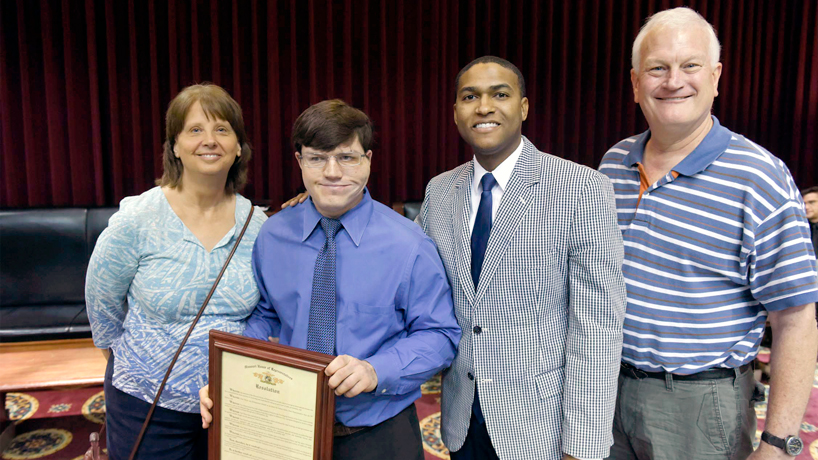
On the Missouri House floor, Rep. Joshua Peters (center in sports coat) honors UMSL SUCCEED program alumnus Paul Meyer (center in blue) with a Missouri House of Representatives resolution on May 10, Meyer’s last day of his state capitol internship in Peters office. Meyer’s parents, Diana and Don, were there to celebrate. (Photo by Tim Bommel)
Paul Meyer became a familiar face in Jefferson City, Missouri, this past legislative session.
Not only was the University of Missouri–St. Louis SUCCEED program alumnus interning for state Rep. Joshua Peters, but he was also advocating on behalf of Missourians with disabilities.
Meyer, who is disabled and had a brain tumor as a child that contributed to his condition, worked in Peters’ office Wednesdays from 9 a.m. to 6 p.m. He summed up bills, put stickers on certificates for college students and did general office work.
He also got the opportunity to attend floor debates and visit legislators’ offices, where he lobbied for the passing of the MO ABLE program that offers tax-incentive savings accounts to Missourians with disabilities.
The state program is based on the federal Achieving a Better Life Experience (ABLE) Act of 2014, which helps people with disabilities build savings without losing government benefits.
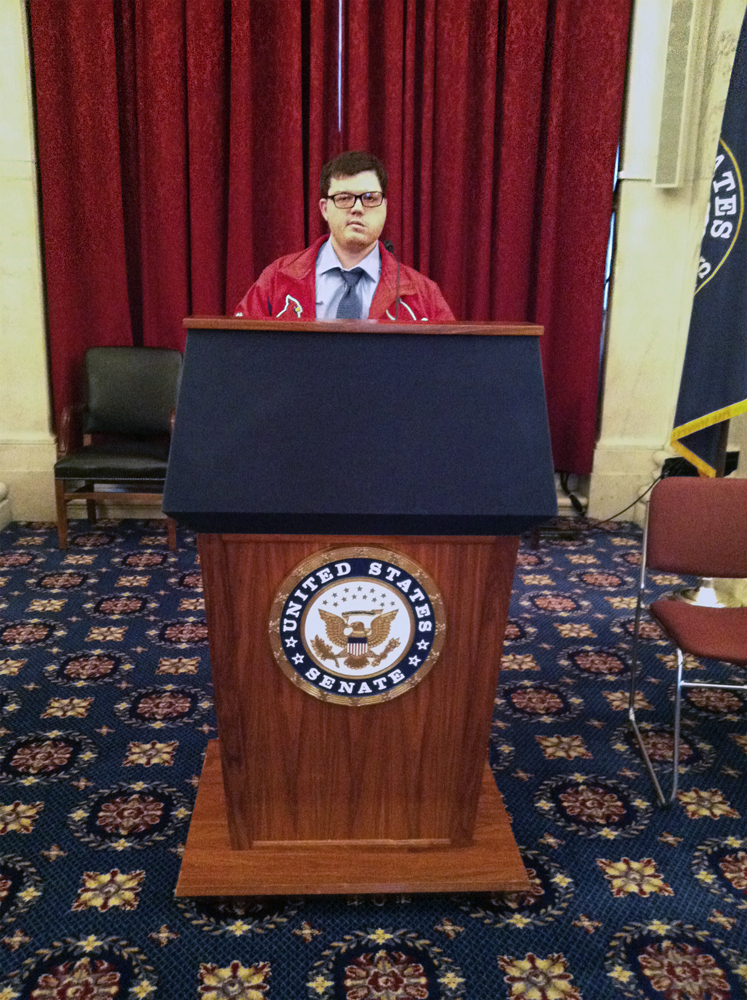
In 2014, Paul Meyer stands at the U.S. Senate podium in Washington, where he traveled as a UMSL SUCCEED student to take part in his first-ever TASH conference. While there, he was introduced to disability politics and learned about the federal ABLE Act of 2014 as it went up for a vote and eventually passed. A few years later, he was instrumental in helping pass the MO ABLE program in his home state. (Photo courtesy of Paul Meyer)
In 2015, Missouri joined several of the first states to pass state ABLE Acts. Prior to the Missouri ABLE Act, residents with disabilities couldn’t have assets and collect on their Supplemental Security Income. After the act passed, they still couldn’t accumulate more than $2,000 of savings without losing their SSI. This meant purposefully spending and turning down job opportunities to keep their assets below the $2,000 limit.
For Meyer, that presented a financially unacceptable and meager living situation for people with disabilities who have costly medical bills and living expenses and couldn’t plan accordingly for their futures. He supported the MO ABLE program as a solution.
Meyer paid visits to Missouri legislators, including Sen. Claire McCaskill, Rep. Ann Wagner and others.
“I told them that it needs to be passed,” Meyer said. “It would affect people like me who have a disability. This way we won’t be penalized.”
His efforts paid off. On April 24, state Treasurer Eric Schmitt launched the MO ABLE program, allowing Missourians with disabilities a more stable financial option. Any person diagnosed with a disability prior to age 26 can enroll for $50. A single person can contribute up to $8,016 in a year, and a married couple can contribute up to $14,000. There’s a total $100,000 limit before losing access to federal and state assistance.
“That’s a lot of money,” said Meyer hopefully.
Surprisingly, Meyer said he never had any particular passion for politics. He thought the Missouri House floor was “interesting” and “a little bit loud.” He even found it “a bit silly how different people have their different mindsets about different bills.”
But whether he really liked politics or not, politics found Meyer during his time in the SUCCEED program at UMSL.
Designed for developmentally and intellectually disabled students, the SUCCEED program teaches life skills while offering the college experience. It also introduced him to Associate Professor of Special Education April Regester.
Regester encouraged Meyer to join The Association for Persons with Severe Handicaps, a nonprofit organization for disability advocacy commonly known as TASH. He traveled to Washington for the annual TASH conference and learned about the federal ABLE Act when it was originally up for vote.
Remembering back to those initial introductions to disability politics, Regester felt proud of Meyer’s recent advocacy work for the MO ABLE program at the state-level.
“[It’s] really cool to see his advocacy rewarded and to see the recognition from state representatives,” Regester said.
That opportunity may never have presented itself if he hadn’t found the SUCCEED program at UMSL and met Regester. Meyer got to live on campus, take classes and join student organizations just like any other UMSL student.
“It taught me independence … such as doing your own laundry, taking the metro, taking the shuttle and getting your groceries on the weekend,” Meyer said.
Those skills not only helped Meyer, who graduated in 2015, prepare for life after the SUCCEED program, but the social skills he developed also helped him professionally. When he emailed Peters about the internship, he received an interview and nailed it.
“They liked me right away. Everyone does,” Meyer said with a teasing self-confidence.
Meyer’s internship ended May 10, two days before the end of the legislative session.
“We were truly sad to see him go,” said Peters’ assistant Pedro Guerrero. “We were so lucky to have him, and I cannot thank you [UMSL] enough for all of the skills you provided him with.”
But while his internship may be done, his advocacy for the disabled community isn’t. Meyer now sits on the board of directors for TASH.
“It’s important because some people that have disabilities get treated unfairly,” Meyer said.
Beyond his advocacy work, Meyer holds two part-time jobs – one at Lowe’s, watering plants in the garden section, and another at Marshalls as a backroom associate. He continues to live with his family in south St. Louis.



